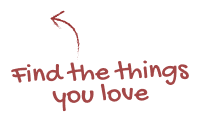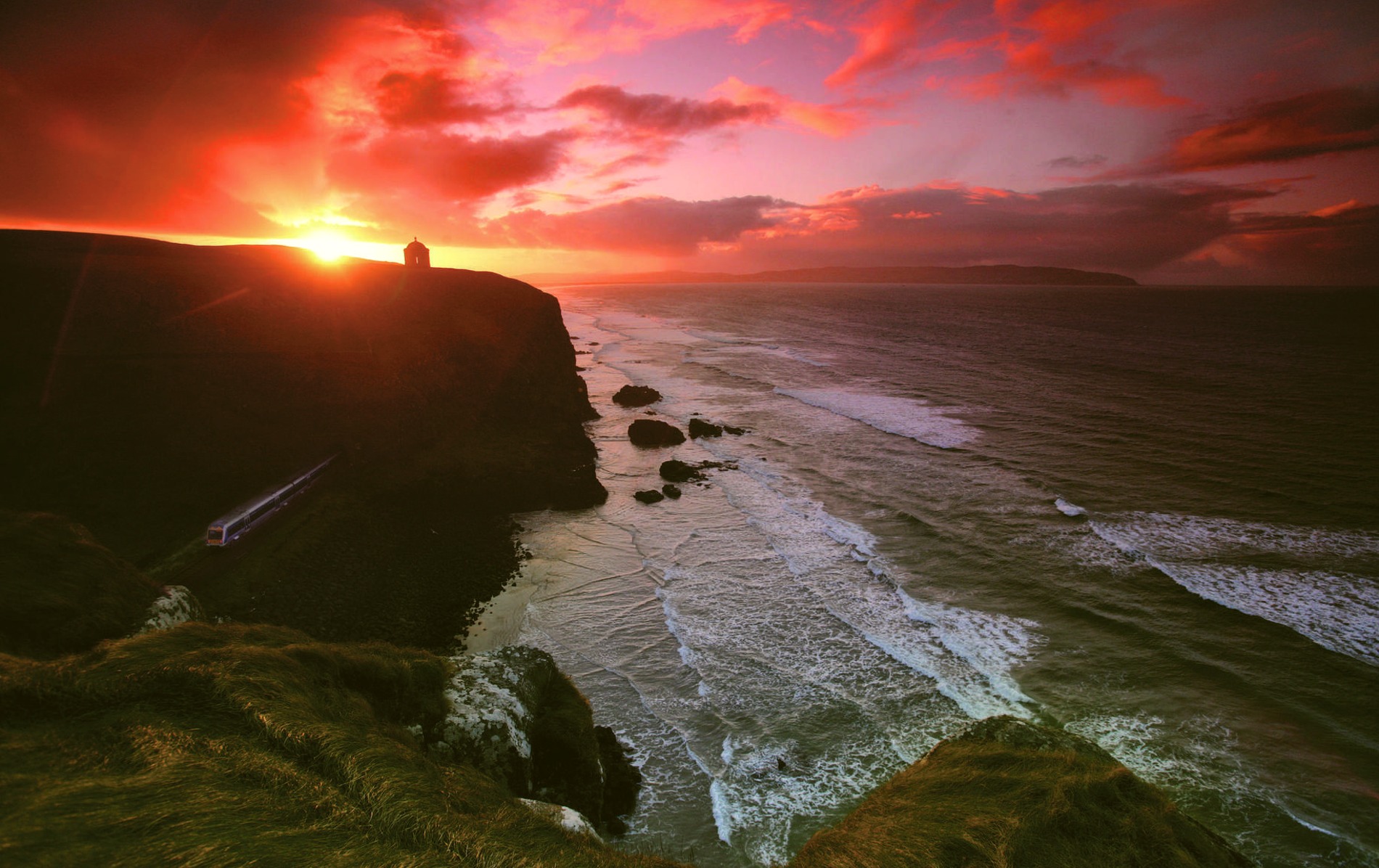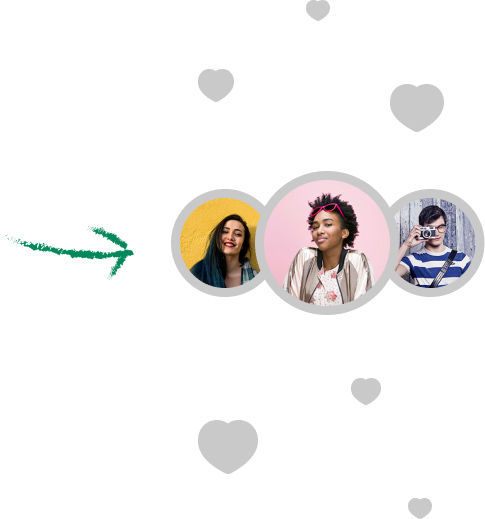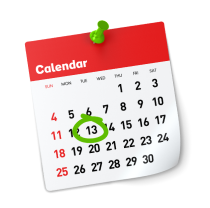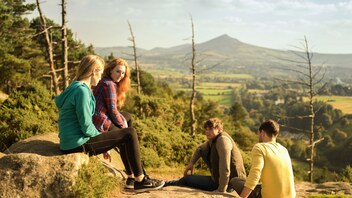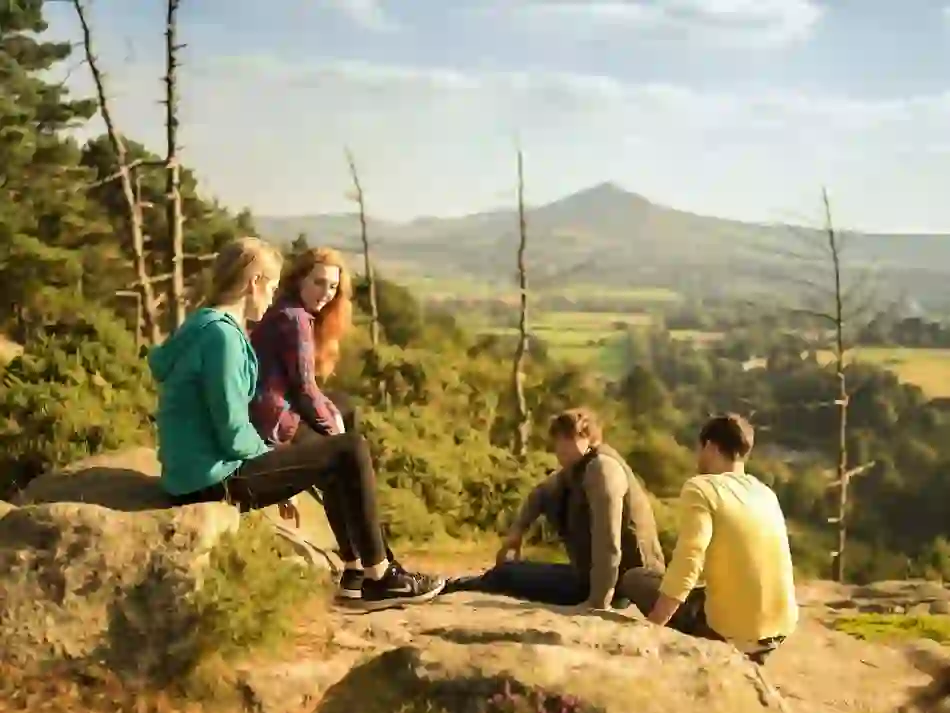
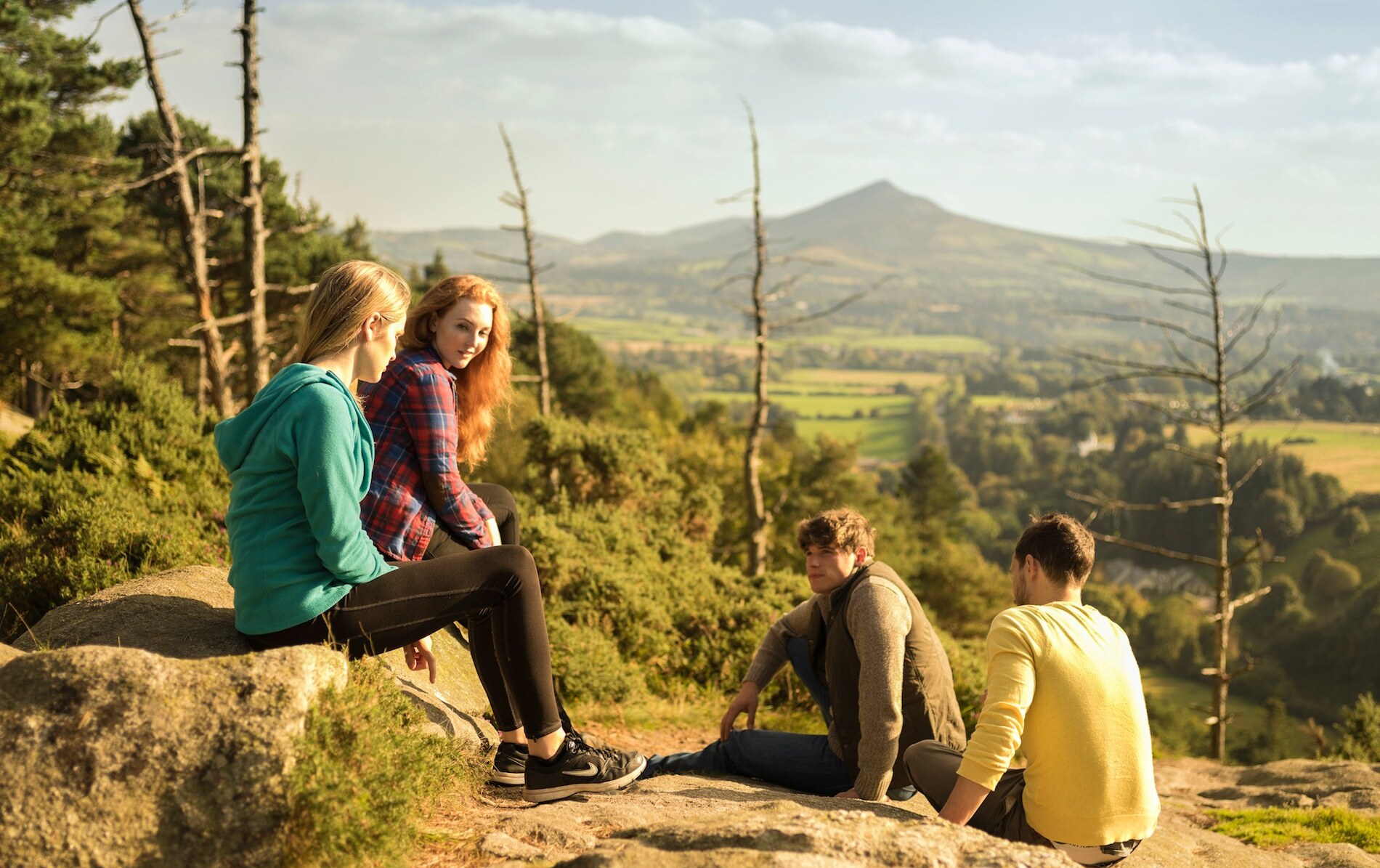
Le lingue d'Irlanda
Sai quella storia che hai sentito a proposito dell'Irlanda e del dono della parlantina? Beh, è vera
In Irlanda tutti parliamo inglese, ma l'anima di questa terra è così tanto cosmopolita che, nelle nostre città e cittadine, potrai sentire anche qualcuno conversare con accento polacco, coreano, giapponese, brasiliano... Drizza le orecchie per non perderti nessuna sfumatura.

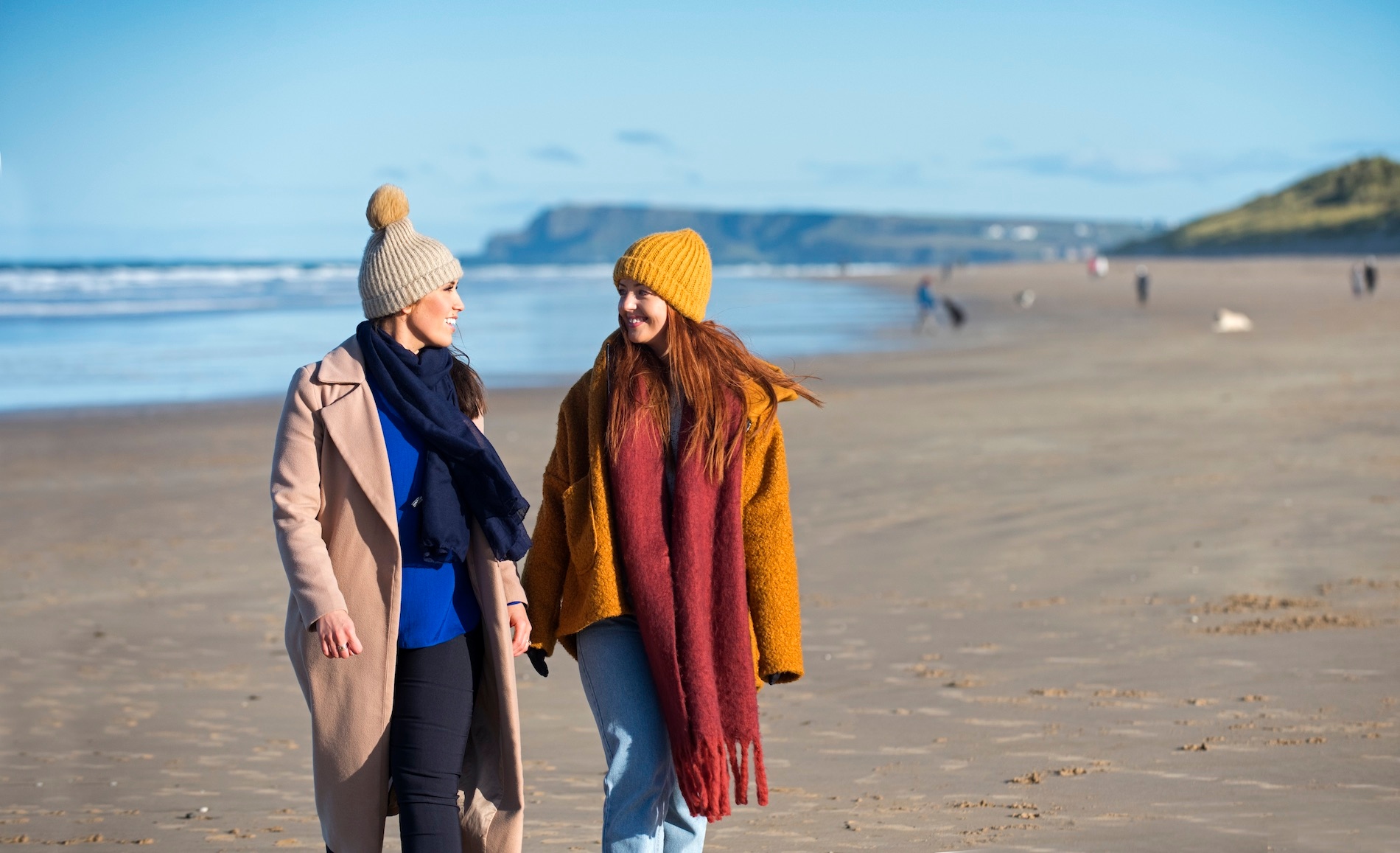
Portrush, contea di Antrim
Lo sapevi?
Irlandese
Secondo Foras na Gaeilge, la lingua gaelica d'Irlanda (Gaeilge, o irlandese com'è conosciuta a livello locale) è una lingua celtica e una delle "lingue scritte più antiche e storiche del mondo." Il suo ritmo poetico si sente nelle scuole del Paese e nei negozi, nei pub, nelle strade, nelle fiere e nei festival delle aree Gaeltacht (di lingua irlandese).
Tieni gli occhi aperti perché entrerai in contatto con la lingua irlandese sin dal tuo arrivo: i cartelli stradali nella Repubblica d'Irlanda sono sia in inglese che in irlandese.
Per maggiori informazioni
Il Foras na Gaeilge, l'organo pubblico responsabile della promozione della lingua irlandese nell'isola, è un ottimo riferimento.
Ullans e irlandese
La prima lingua dell'Irlanda del Nord è l'inglese. Ma anche l'ullans (dialetto scozzese dell'Ulster) e l'irlandese sono riconosciuti come culturalmente significativi ed è per questo che a Belfast potrai visitare il Cultúrlann, il centro di arte e cultura irlandese, e l'Ulster-Scots Language Society, che espone produzioni in dialetto scozzese dell'Ulster.
Ma cos'è l'ullans? Diciamo che è una variante dello scots, la lingua introdotta nell'Ulster dagli scozzesi all'inizio del XVII secolo. Lo scots fa parte della famiglia delle lingue germaniche occidentali, un bel linguaggio musicale che oggi viene studiato nelle università. Infatti, potresti aver già utilizzato un po' di dialetto scozzese dell'Ulster senza neanche saperlo. Hai mai sentito parlare dello scozzese Robert Burns? Sono suoi i versi di Auld Lang Syne (The Good Old Days/I bei vecchi tempi), la canzone che viene cantata ogni ultimo dell'anno.
Per maggiori informazioni
La Ulster Scots Agency è la risorsa principale per scoprire di più sul dialetto e sulla cultura scozzese dell'Ulster.
L'inglese parlato dagli irlandesi
L'inglese resta la lingua principale dell'isola d'Irlanda ma, in pieno stile irlandese, abbiamo aggiunto un tocco tutto nostro sviluppando quello che è conosciuto come inglese-irlandese. L'inglese-irlandese fonde la grammatica dell'irlandese nella lingua inglese. Ecco qualche frase che ti potrebbe capitare dei sentire durante i tuoi viaggi:
- "C’mere till I tell you": "Potresti avvicinarti in modo da riuscire a sentirmi? Ho qualcosa da dirti"
- "You never asked if I’d a mouth on me": "Non mi hai chiesto se avessi fame"
Tra le persone che incontrerai, molte si scambieranno cúpla focal (qualche parola) in irlandese e la gente del posto, specialmente nelle zone Gaeltacht, apprezza sempre lo sforzo dei turisti nel parlare la loro lingua. Se te la senti di provarci, ecco qualche frase per rompere il ghiaccio...
- Ar maith leat damhsa? (Ti va di ballare?) Phonetically: air-wai-lat-dowsa.
- Dha Guinness le do thoil. (Due Guinness, per favore) Phonetically: gaw-Guinness-leh-duh-hull.
- Nach bhfuil an aimsir go h-álainn?! (C'è un tempo meraviglioso, vero?) Phonetically: knock-will-on-iym-shur-guh-hawling
- Dia duit (Dio sia con te) significa ciao. Phonetically, it sounds like dee-ya-gwitch.
- Conas ata tú? (Come stai?) può essere utilizzato anche come saluto. Phonetically, it sounds like cunus-ataw-two.
- Sláinte (Salute) si utilizza durante i brindisi. Phonetically, it sounds like slawn-cha.


Proprio come la gente del posto
La scrittrice Felicity Hayes-McCoy, che vive a Dingle, nella contea di Kerry, quindi nell'area Gaeltacht, ha un consiglio per ogni turista desideroso di entrare in sintonia con la lingua:
"Siediti in un angolo e ascolta l'irlandese parlato dai clienti in un qualsiasi pub Gaeltacht. Oppure sintonizza l'autoradio su Raidió na Gaeltachta: questa stazione trasmette melodie e canzoni tradizionali in tutto il Paese. O ancora, segui TG4, il canale televisivo in lingua irlandese, dalla tua camera di hotel o dal tuo B&B e guarda i programmi con i sottotitoli in inglese. Puoi anche iscriverti a un corso di lingua o seguirne uno online su siti come Bitesize Irish prima di arrivare, giusto per avere una piccola anticipazione di ciò che ti aspetta una volta qui."
Quindi, benvenuto in Irlanda, o Fáilte go hÉireann o Fair Faa Yae tae Airlan.

